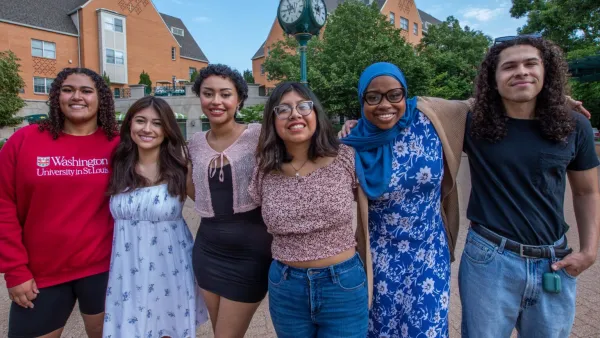Professor Taylor Carlson and PhD Alum Benjamin Noble have received the Best Paper in Political Behavior Award. The award was given in the Elections, Public Opinion, and Voting Behavior section of the journal, Political Behavior. The article, titled, "CueAnon: What QAnon Signals About Congressional Candidates and What it Costs Them", highlights the potential costs of elite conspiracy theory support and complicates popular narratives about QAnon. The paper, headed by Noble, began research while Noble was a graduate student at WashU, and was supported in part by a fellowship from the Weidenbaum Center.
Read the paper's abstract below and the full paper on the journal's website.
Abstract:
Most research investigates why the public embraces conspiracy theories, but few studies empirically examine how Americans evaluate the politicians who do. We argued that politicians portrayed as supporting QAnon would garner negative mainstream media attention, but this coverage could increase their name recognition and signal positive attributes to voters with low trust in media who would feel warmer toward those candidates. Although we confirm that candidates friendly toward QAnon receive more negative media coverage, our nationally-representative vignette experiment reveals that QAnon support decreases favorability toward candidates, even among seemingly sympathetic sub-populations. A follow-up conjoint experiment, varying whether candidates support QAnon, replicates these findings. This paper is one of the first to highlight the potential costs of elite conspiracy theory support and complicates popular narratives about QAnon.



